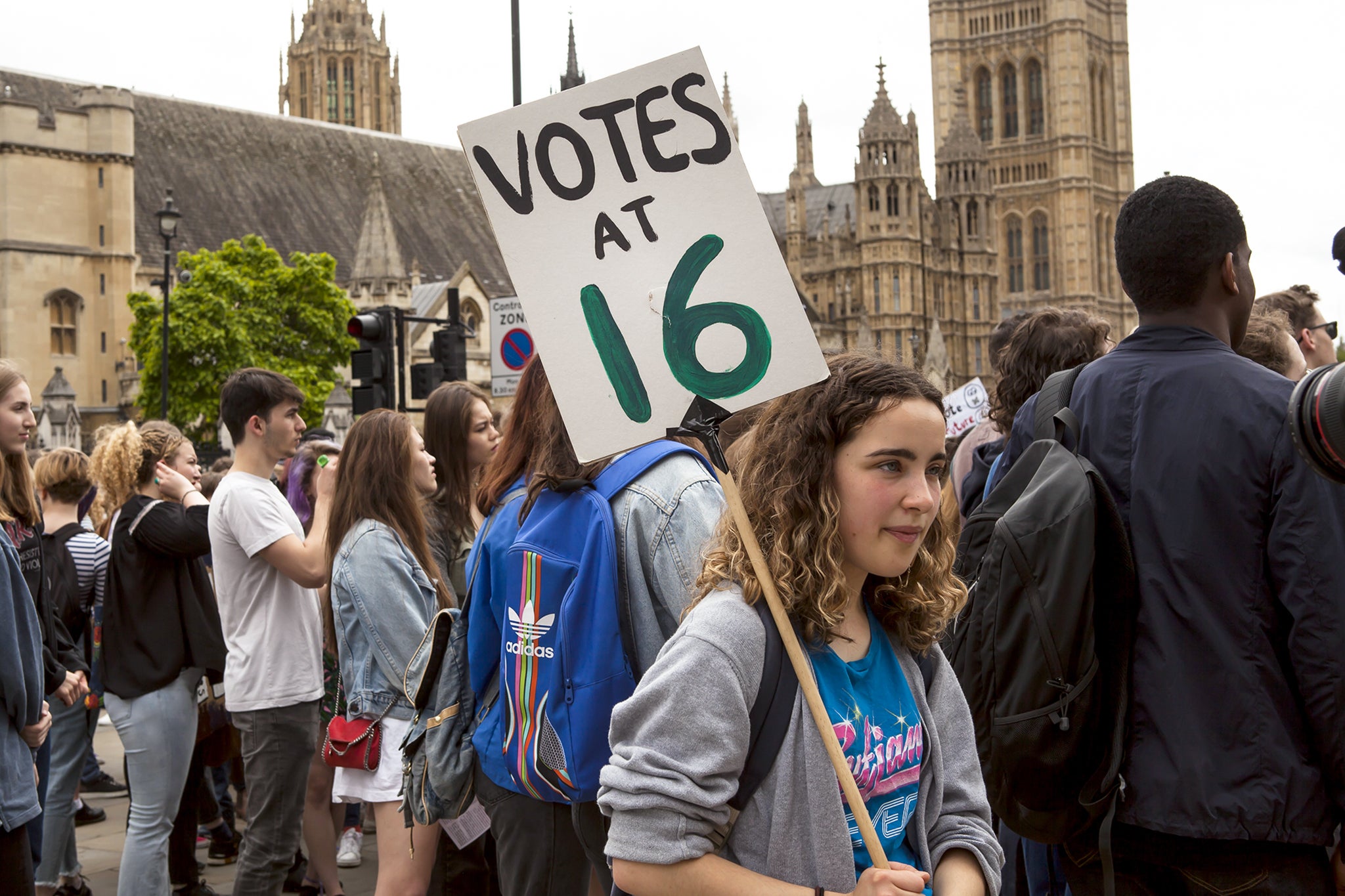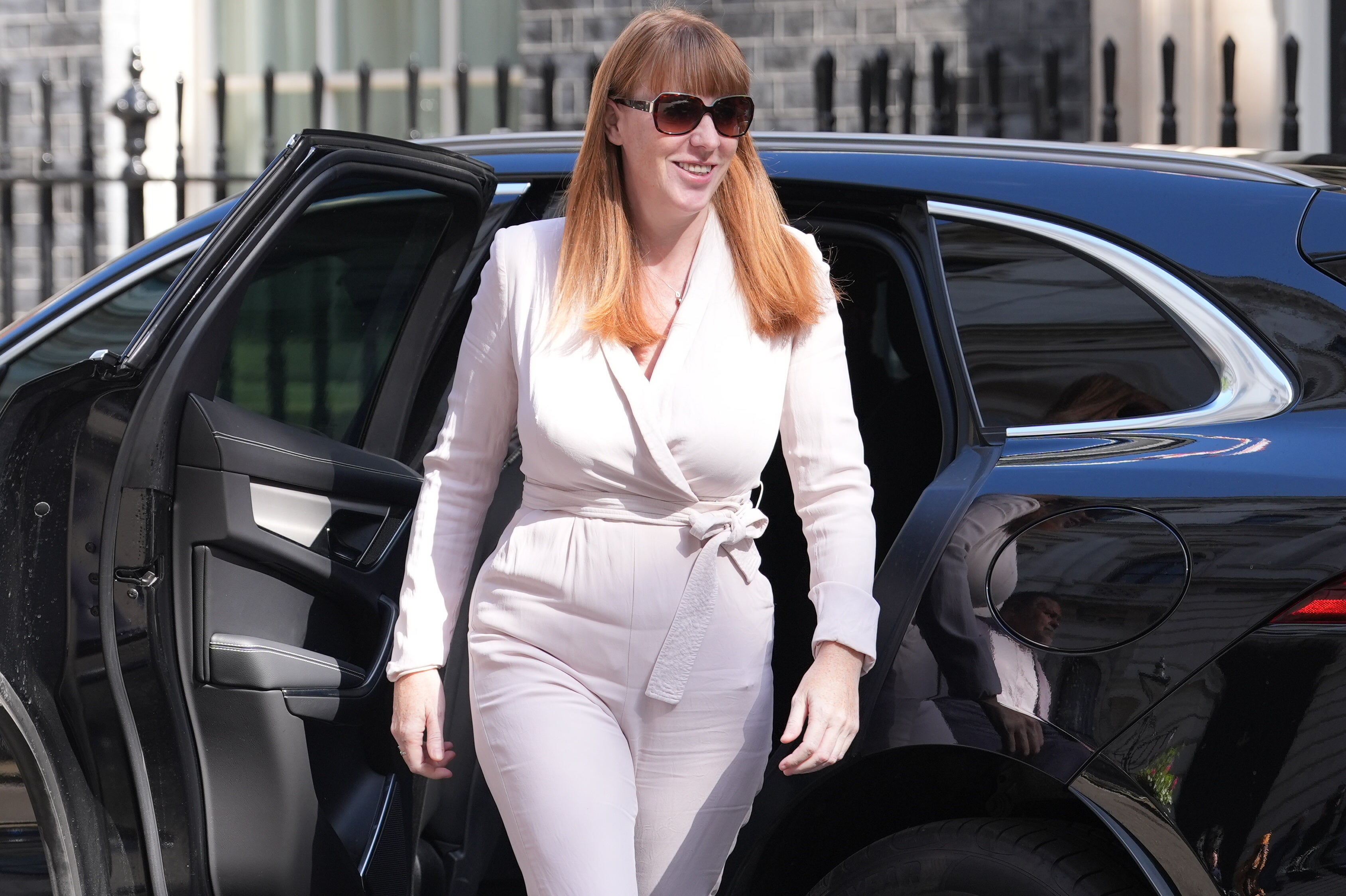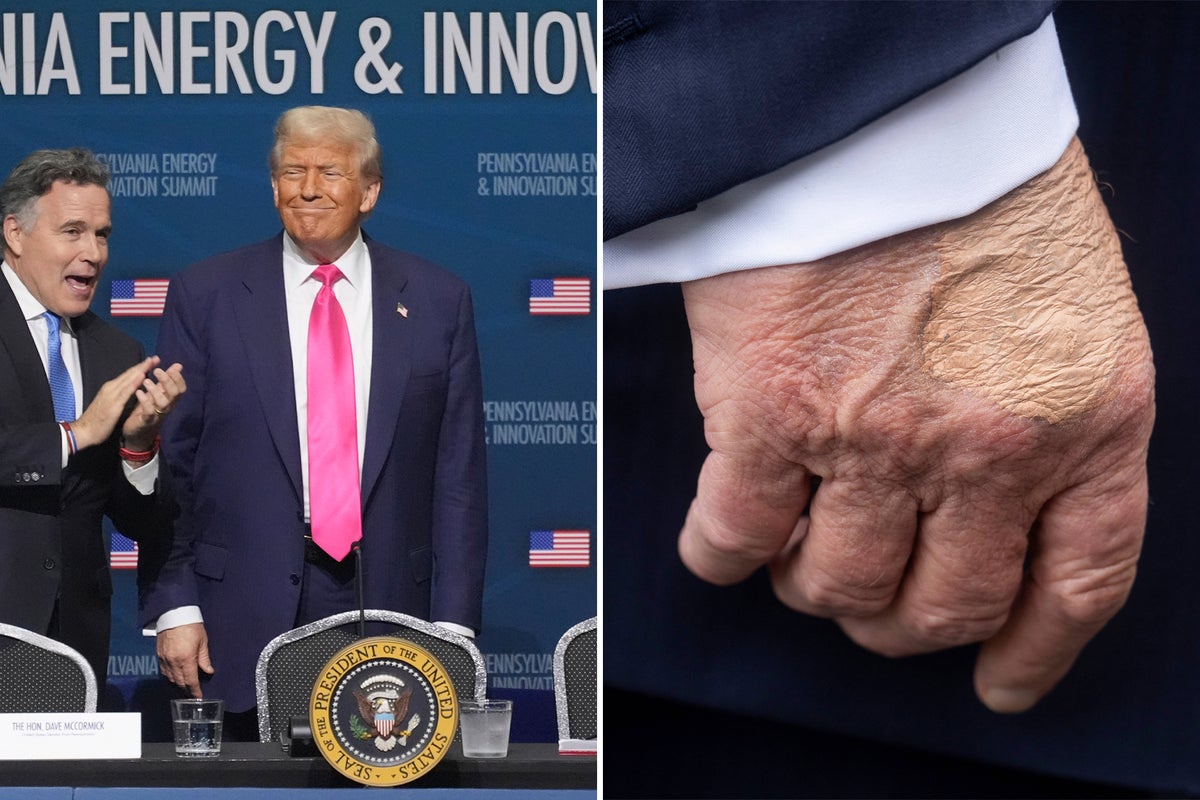The voting age is to be lowered to 16 in time for the next election, the government has announced in a move that would allow around 1.5 million more teenagers to cast a ballot.
The change will bring UK-wide elections in line with Scotland and Wales by the time the country next goes to the polls, due by the summer of 2029 at the latest.
The “seismic” development, which is part of a raft of measures set to be introduced through a new Elections Bill, is the biggest change to the electorate since 1969 when the voting age was lowered from 21 to 18.
Keir Starmer encouraged 16 and 17 year olds to use their vote at next election.
No 10 said the PM would “absolutely encourage them to be as engaged as they can be in the future of their country”.
Deputy prime minister Angela Rayner said: “For too long public trust in our democracy has been damaged and faith in our institutions has been allowed to decline.

“We are taking action to break down barriers to participation that will ensure more people have the opportunity to engage in UK democracy… and delivering on our manifesto commitment to give 16-year-olds the right to vote.”
Sixteen-year-olds already work, pay taxes and serve in the military, ministers point out.
Rushanara Ali, the minister for democracy, said the move would take “a generational step forward in restoring public trust and boosting engagement in UK democracy”.
But politicians from other parties have accused Starmer of trying to “rig future elections” with the change.
The PM insisted last year the issue was one of fairness. He said: “If you can work, if you can pay tax, if you can serve in your armed forces, then you ought to be able to vote.”

Across the world there are only a handful of countries where the voting age is less than 18. In 2024 only Nicaragua, Scotland (for devolved Scottish Parliament and council elections), the Isle of Man, Guernsey, Ethiopia, Ecuador, Cuba, Brazil, and Austria had votes at 16.
Last year the then Tory MP Andrea Jenkyns, who has since lost her seat and defected to Nigel Farage’s Reform party, put a video out on X (formerly Twitter) claiming that Starmer wants to “rig future elections”.
But Chris Annous, from pollsters More in Common, said expanding the right to vote to 16 and 17 year olds “will have little impact on election results – outside of hyper marginal seats”.
A new poll has also found nearly half of 16 and 17-year-olds don’t think they should be allowed to vote.
The survey of 500 16 and 17-year-olds by Merlin Strategy for ITV News found that 49 per cent didn’t think the voting age should be lowered to 16, while 51 per cent said it should.
The plans will also see UK-issued bank cards as an accepted form of ID at the polling stations. A more automated voter registration system will also make it easier for people to register to vote, the government said.
New changes will also close loopholes that would allow foreign donors via ‘shell companies’ to influence UK political parties.
It follows reports earlier this year that Elon Musk was preparing to give $100m (£80m) to Nigel Farage’s Reform UK party, in what would have been by far the largest donation in British electoral history.

The changes will also allow the Electoral Commission to take action and enforce heavier fines of up to £500,000 on those who breach political finance rules, and enable tougher sentences for those who abuse election campaigners.
The reforms come as the official watchdog the Electoral Commission reported that spending at last summer’s general election hit a record high of £94.5 million, including £69.3 million spent by political parties.
Labour outspent its rivals, shelling out £30 million during the campaign, more than twice the amount it spent five years earlier, while the Conservatives spent £23.9 million and the Liberal Democrats £5.6 million.
Reform spent £5.5 million, the Greens £1.7 million and the SNP £799,000.
Harry Quilter-Pinner, executive director of the IPPR think tank, said the changes were “the biggest reform to our electoral system since 1969”, when the voting age was lowered to 18.
He said: “Barely half of people voted in last year’s general election. Our democracy is in crisis, and we risk reaching a tipping point where politics loses its legitimacy. The government has clearly heard these alarm bells.”
No 10 “absolutely rejected” claims that the reform was being brought in to shore up the government’s vote.


